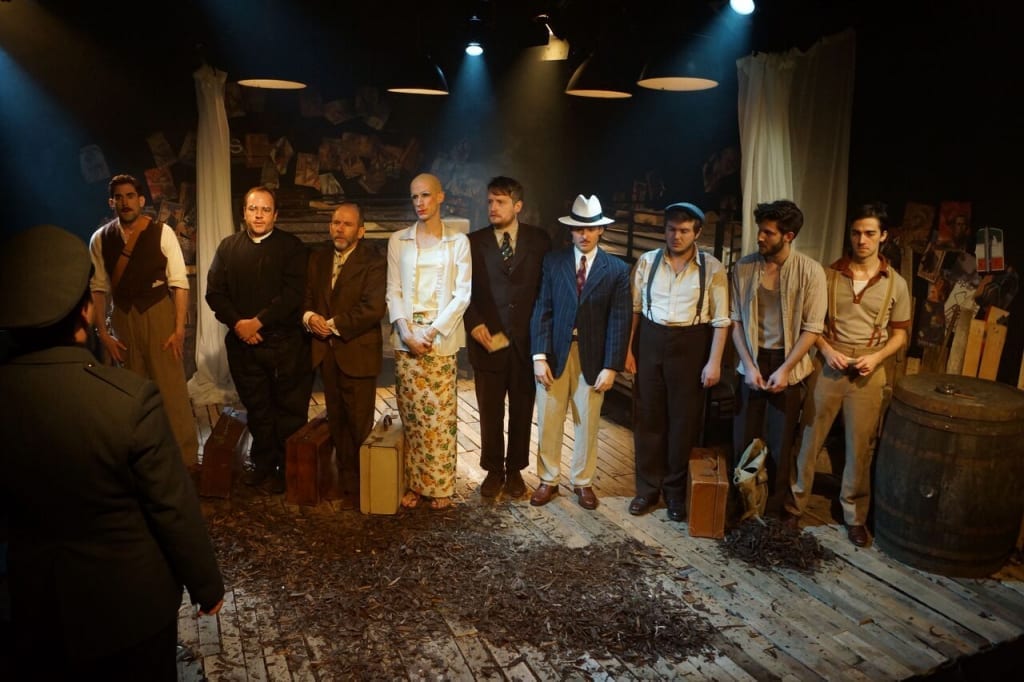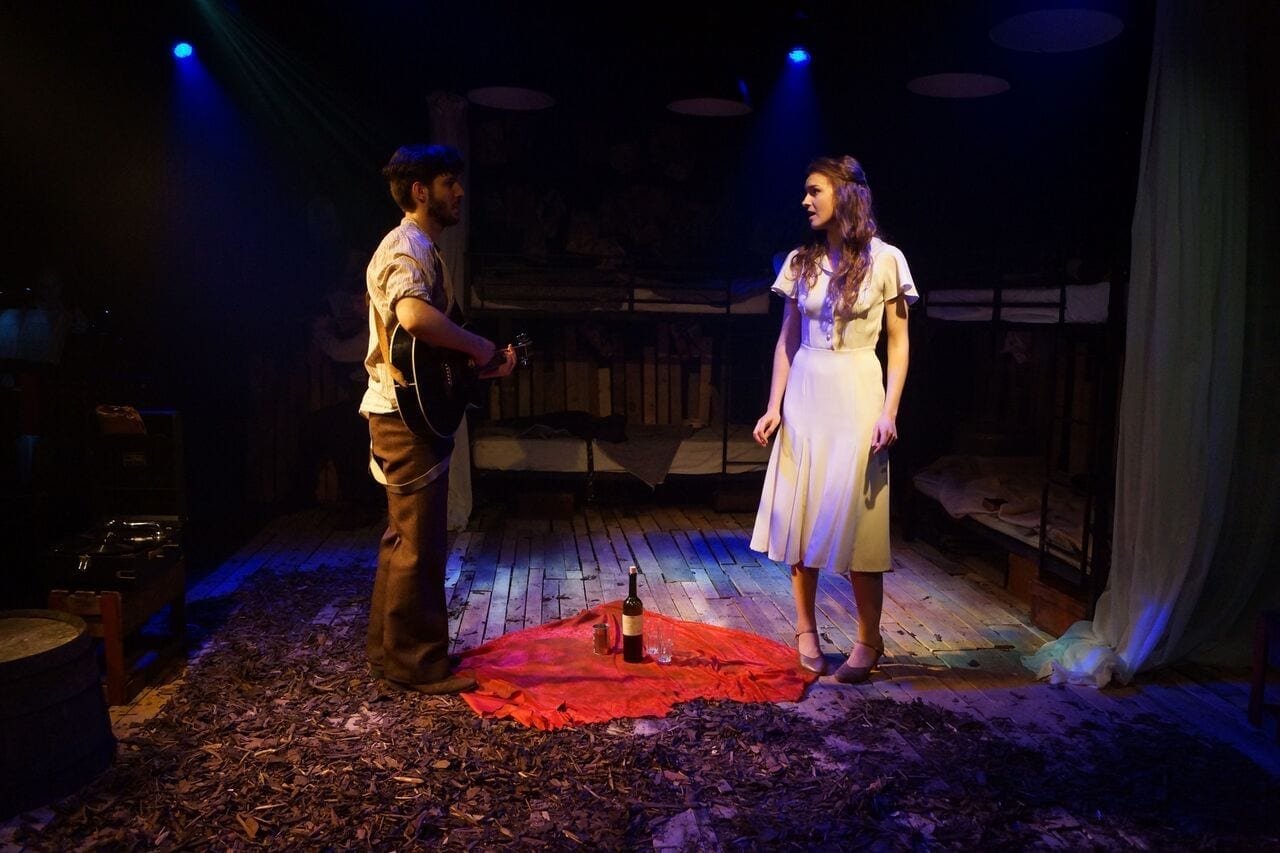The time: 1939, the place: Mussolini’s Italy, the crime: homosexuality. A group of gay men from Catania are exiled to the prison Island San Domino. Outed and isolated, the men feel free to display their true romantic and sexual preferences, though their eventual ‘rehabilitation’ is expected. This show is as much a celebration of male homosexuality as it is an exploration of fascist oppression, in fact the two seem in inherently linked. It is impossible to celebrate, recount and mourn the lives of the men debilitated by intolerance without representing that intolerance. This is a powerful story, written with wit, sensitivity and creativity. The cast more than bring this piece to life. You can almost feel the intimate Tristram Bates theatre struggling to contain the vitality and emotion of their performances.
‘We’re musicians,’ drag queen Melissa declares euphemistically, yet most of the cast can play an instrument as flutes, clarinets and guitars all make appearances. Bearing witness to this panoply of talent is intoxicating. But more than anything, this production is a lesson in nuance. Every character feels like a fleshed out individual. It is interesting to see the different experiences of life in San Domino; from fastidious lawyer Carlo (Matthew Hendrickson), to shame faced priest-in-training Antonio (Rodger Parkins) and closeted prison guard Paulo (Callum Hale). Rather than focussing on one group within the Gay community (like drag queens in The Adventures of Priscilla, Queen of the Desert) many men are represented.

After a drunken night out lands him in the wrong place and the wrong time Franco (David Gibbons), a very straight farmer, bizarrely finds himself carted off to San Domino with the other ‘girls’. However, he bears no ill towards his fellow inmates. Instead, in one of the twists of the intricate plot, love blossoms between him and a young girl on the Island. Equally abused and oppressed by fascism, Franco and Lucia (Hannah Genesius) have a chance to escape their bitter realities. Meanwhile, divisions and resentment surface between the other prisoners, revealing the stress of life in captivity. This musical illustrates that despite being sent to a place where they can be openly gay, nothing can sooth the pain of ‘civil death’. Their feelings of inadequacy, isolation and shame in response to Mussolini’s hypermasculine ideals are explored, creating poignant moments. Ostensibly to prove his dominance, mafioso Mario (Grant Neal) turns to bullying other inmates, alluding to the idea that some men compensated for their feelings of emasculation through violence.
Frustratingly, parts of this production feel undercooked. The opening scene was hard to follow, a couple of notes were off-key and though the music was full of folksy jazzy melodies, nothing was truly memorable. An Englishman caught up in the arrests is distinguishable from the Sicilians with his Italian accent (the rest of the cast have British voices). This largely irritating gimmick has some comedic moments, though doesn’t seem to add anything spectacular. I also can’t help wondering about the experience of lesbians during this time, as often the ‘G’ in LGBTQI+ seems the most vocal (with the except of T recently) letter in the acronym, though this is not a fault of a single musical. This show effectively reveals the pointless cruelty of homophobia. San Domino depicts its victims as individuals rather than caricatures, ensuring their memory endures into the future.

